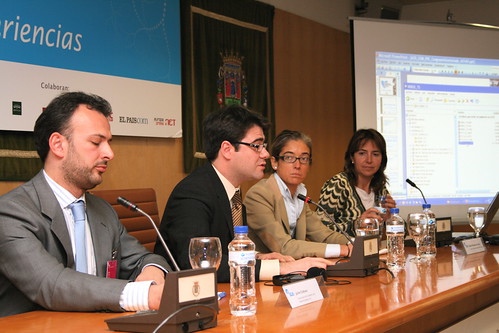
So here's a topic that's been obsessing me lately, and although it has been hitting me on two very different fronts, it's actually the same issue. One is what one of my board directors called "having an adventure." In his mind, there are 3 questions he asks himself when he does public benefit stuff, one of which is, "Am I having an adventure on this?" I thought it was a great question, and in fact a question I implicitly answer yes to every morning when I come into work.
Now how does this connect to donor engagement on GlobalGiving?
Well, the thing I have been struggling with lately is how to get donors, many of whom have never given before internationally, to get a feel for what a high-wire act international development, let alone social entrepreneurship is in the developing world. In some ways it's a miracle it happens at all. And it's a miracle not only because some countries are in such dire straits that wars, natural disasters, political unrest make everything iffy. It's a miracle because the exact concatenation of factors that makes a CFW clinic viable in a particular location depends at times on the personal situation of one key person--and talent is sometimes so scarce in the developing world that things like turnover that most organizations in the developed world more or less can cope with can turn out to be showstoppers. And while I don't want things to stay that way, the fact that almost every project leader on GlobalGiving deals 10 such crises before breakfast makes very success and victory very precious. And I want donors to understand that, and don't know how to convey it.
It even extends to understanding the very mundane--forget the high-wire act. I've always said that it's a really expensive proposition being poor in the developing world. That's because even if you're poor in the developed world, odds are you can get access to reasonably clean water pretty easily. In the developing world being poor means you spend 1/2 your day getting clean enough water (and sometimes not clean enough) for your family. And sometime we have a hard time conveying this too ... here's an exchange that started with a user asking about what was behind a donation option to the Dazzling Stone School project. And here's their response ...
thank you very much for your kind enquiry.the soap,toothpaste,bath items are very useful and important need for the children,these are daily using materials actually we need more money for the items.you say below 100$ is good then only we give 90$ for that. I give the expanses step by step.we have 100 children and 10 staff. We need the follow items for soap, toothpaste, and bath items for one month.1- washing soap (125gms ) - IRS 8.502 - Body soap (100 gms) - IRS 15.003- Washing powder(1kilo) -IRS-20.004- Sampoo 1packet - IRS 2.005 - VVDcoconut oil ( 200 ml)- IRS-34.006-Bleeching powder 1packet - IRS 10.007 -Phenoil ( for sterlizing) - IRS 30.008 - Acid (bath floor washing)-IRS30.009 - Tooth paste(100gms) - IRS 27.0010 - Tooth brush - IRS 10.0011 - Face powder - 50grams = IRS 16.0012 - Baby powder - 300gms = IRS 90.00&etc.we need 1 washing soap for 10 children,1 soap for 5staff /DAY - Total(10x1 +2X1) x30DAYS = 360 numbers - IRS-3060(78$)1 body soap for 25 children &1soap for 10 staff /day - 5x30daysxIRS 15 = IRS 2250(58$)need 1 kilo/day - 1x30daysxIRS 20 = IRS 600(15$)need 400 packets sampoo(weekly twodays) - 400xIRS2 = IRS 800(21$)-need 400 ml coconut oil /day for all - IRS 34 x 2x30 = IRS 2040(52$)need 2 packets Bleeching powder/day - IRS 10x2x30 = IRS600(15$)need 1bottle /day - IRS30x1x30 = IRS900(23$)need acid 1/2 bottle/day - IRS30x1/2x30 = IRS450(12$)need 300 gmsTooth paste/day - IRS27x3x30 = IRS2430(62)need tooth brush 110 numbers/month - IRS110x10 = IRS1100(28$)need 50 grams Face powder /day - IRS 16x30 = IRS480(12$)need 600grams baby powder/month - IRS90x2 = IRS180(5$)Total for all needs = 381$Washing brushes,Eye pro,creams,body spraies,bath towels,napkins and etc also needed.The electricity charges changing every time.Now we are using electricity little purpose only ,mainly for lights and fans only.we are send the the children to free schools ,so some fees only they collected ,so the education charge is low.with love,
etc.
I'm racked with how we can convey this quickly and easily to donors so they can get a real "feel" for the world that's contained in GlobalGiving ...











